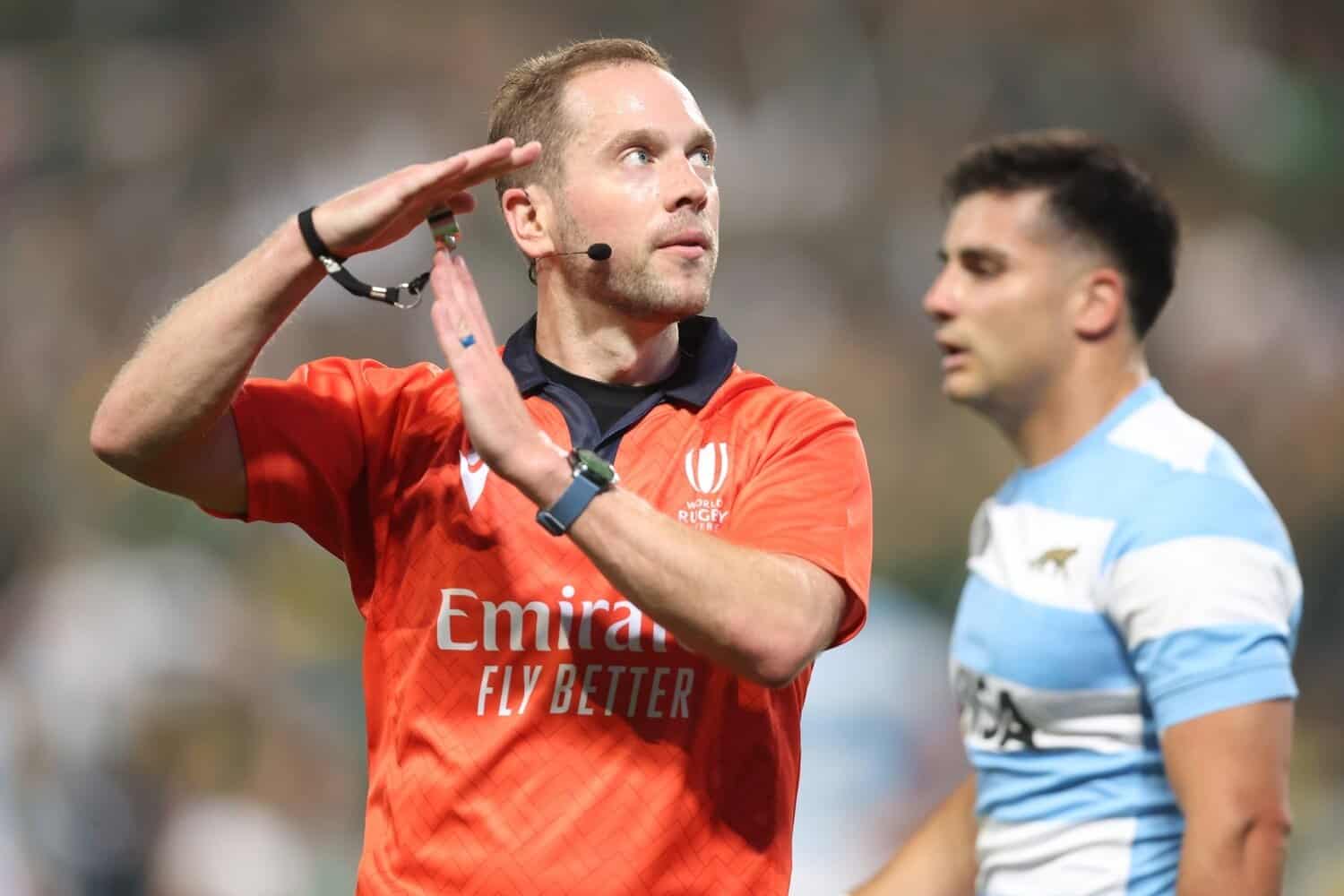'We can’t be better than technology, and if we can apply technology to bring fairness and accuracy to our game, I am fully on board.'

The new Television Match Official (TMO) structure, implemented as a trial law in this season’s United Rugby Championship (URC), has received the backing of the tournament’s head of match officials.
The system, called the Independent TMO, places an official and a technical operator in a booth with access to all broadcast camera angles on their computer screens. They can rewind footage as far back as needed at any time while play continues.
This contrasts with the old structure, still used in the Premiership and Top 14, where a single official monitored two screens – one live and one on a short delay – and had to rely on the broadcaster to rewind and play back footage for referrals.
Head ref: Independent TMO to improve game
Tappe Henning, the URC’s head of match officials, said the new process speeds up reviews and improves accuracy.
“It is the way forward,” he told media on Tuesday. “The game has become very challenging for an individual to make live accurate calls. Challenges have become faster. Teams are playing the boundaries smartly. An individual who deals with everything that happens on the pitch, it becomes almost impossible.”
Henning noted that sometimes the whole world can see something on TV but the referee may miss it because a player is in the way.
“A knock-on that leads to a crucial score in a game… Why can we not help the match official also see what the rest of the world sees?”
He added that the professional game expects referees to be as accurate as possible, without slowing play by reviewing every minor incident.
“This is why I fully support this. This is where the future lies. We can’t be better than technology, and if we can apply technology to bring fairness and accuracy to our game, I am fully on board and strongly believe that’s the right direction to go.”
Henning admitted there were “some growing pains” during the first round of the URC but said these were dealt with behind the scenes. Otherwise, referees were happy with the Independent TMO system.
“We are excited about where we can go with this process and what it offers to the competitions.”
On the matter of scrums
On a separate note, Henning addressed scrum laws after suggestions referees were not rewarding dominance.
He said no directive had been issued to speed up scrums or ignore dominance, but teams were expected to use the ball if momentum stalled.
“We allow the teams to keep the ball in the second row and apply the pressure, and then they need to work the ball back if that forward momentum doesn’t start to happen.
“Once it gets to the back of the scrum and it’s still not moving for three to five seconds, the referee then calls use it.”
Support Local Journalism
Add The Citizen as a Preferred Source on Google and follow us on Google News to see more of our trusted reporting in Google News and Top Stories.






